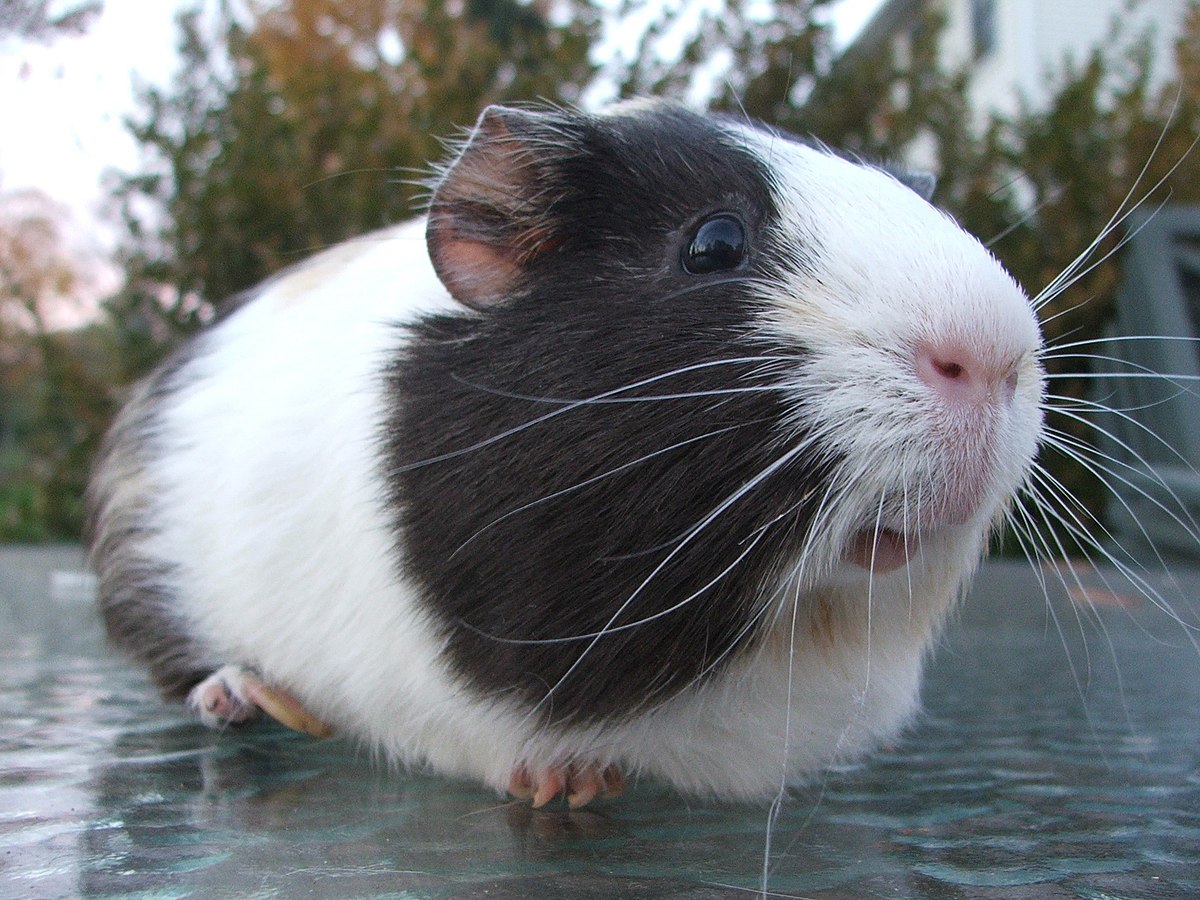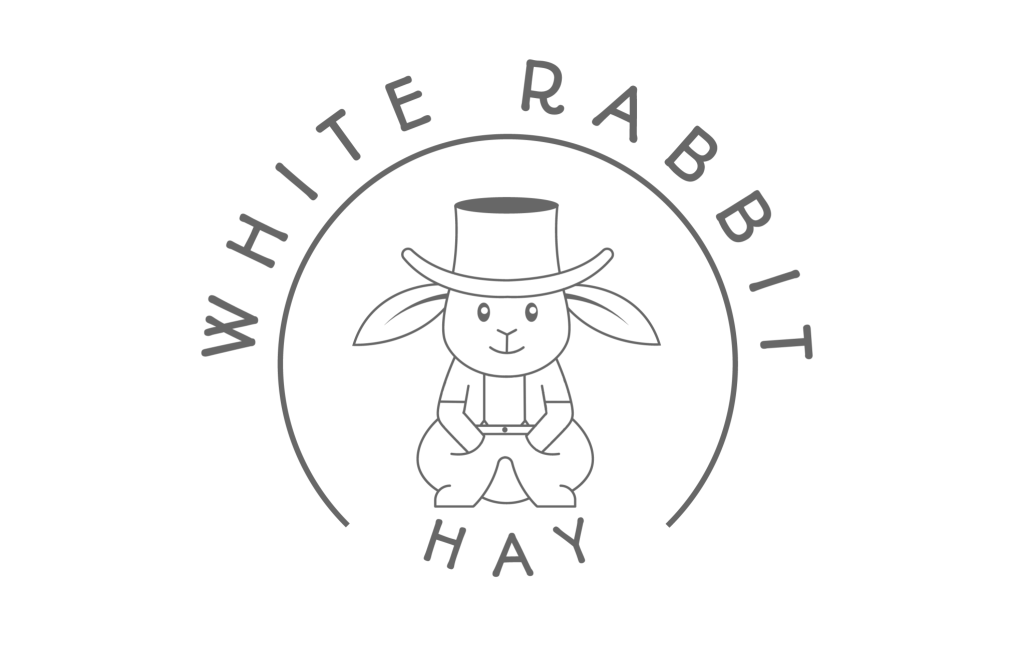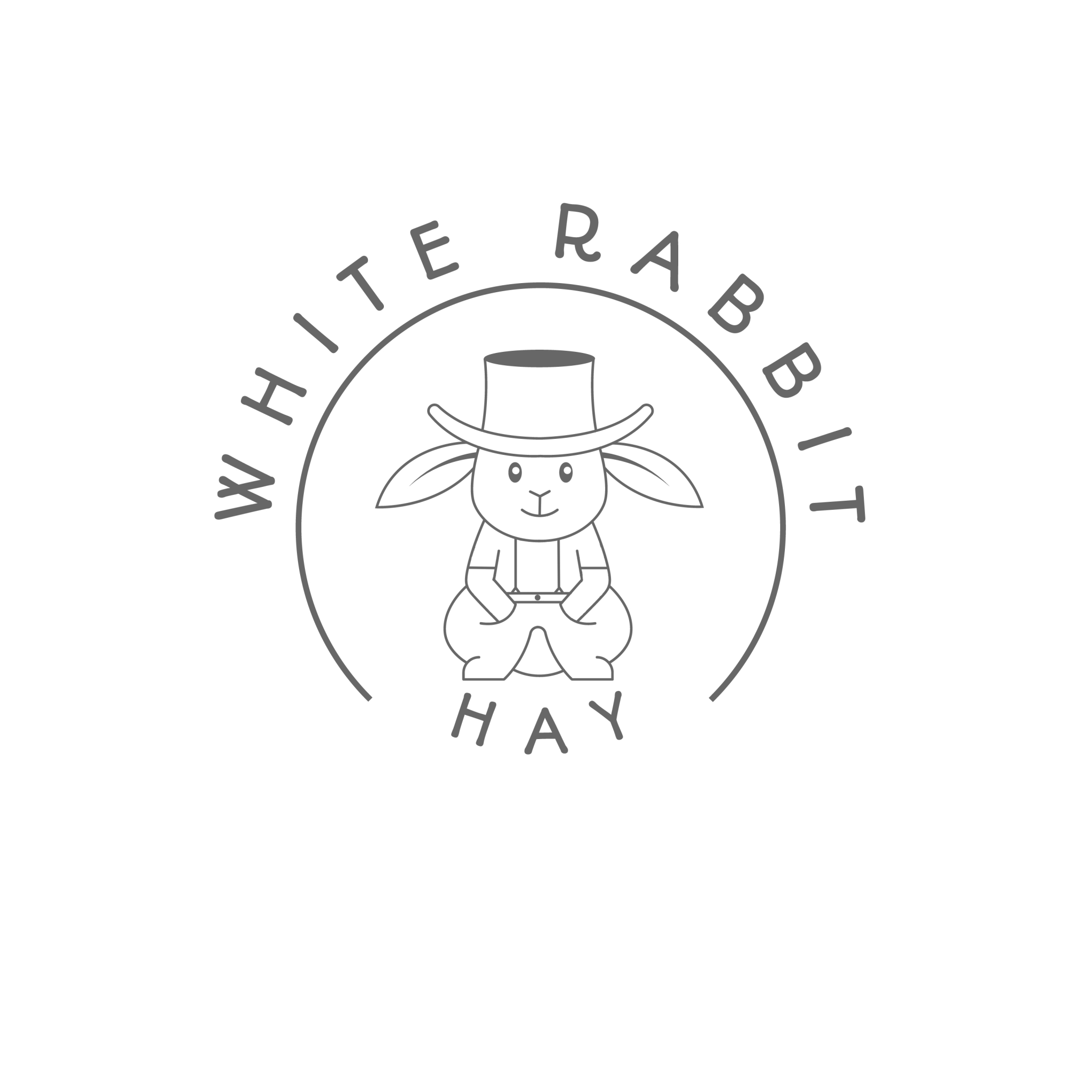
Hay and grass:
Premium quality hay will make up most of your guinea pigs’ diet, it should be continually available. If possible, they should have access to fresh grass, ideally within an outdoor run/enclosure every day. They are natural grazers, eating only grass, hay, herbs and some other plants (such as dandelion or groundsel) grazing for long periods, even in the dark!
It is imperative that guinea pigs have hay and/or grass for their digestive systems to function properly. Just like rabbits.
Guinea pigs will eat up to 5% of their bodyweight in hay/grass per day.
Their teeth grow continually and eating hay helps wear them down, keeping them in tip-top condition. Bad diets can cause serious dental problems.
Never feed your guinea pigs lawnmower clippings, which will upset their digestive systems and make them ill.
Pellets:
Guinea pigs have special dietary needs and must get enough Vitamin C. A fresh portion of grass-based guinea pig pellets each day will help with this, please always follow the manufacturer’s instructions. These pellets should provide enough essential Vitamin C.
Try to provide fresh pellets every day, if your guinea pigs don’t finish them all you should check your feeding amounts. They may need a larger portion if they’re growing, pregnant, nursing or underweight.
Veggies:
Your guinea pigs can have fresh leafy greens or weeds each day, kale and broccoli are great. They are also excellent sources of Vitamin C. Guinea pigs don’t naturally eat fruit or root vegetables, but you can give them in small amounts as treats. No citrus fruits.
A few things to remember about feeding your guinea pigs:
Fresh, clean drinking water must be available at all times, freshly changed morning and evening.
Monitor food quantities and wastage to prevent obesity and malnourishment.
Avoid sudden changes in their diet – introduce new foods gradually.
Guinea pigs produce two dropping types – hard, dry pellets, and softer, moist pellets that they eat directly from their bottom and are essential to their diet.
Veterinarians, animal groups and dieticians all recommend that grass hay is a major part of a Guinea pigs’ diet.
Why feed 1st cut timothy hay?
First cut timothy hay is highly recommended for Guinea pig nutrition:
Is your animal having digestive or intestinal issues, or long teeth that need to be worn down, are there tell-tale signs of over-eating?
First cut timothy hay helps with all those concerns.
First cut Timothy hay is crisp and sweet and has the highest roughage and fibre of all hay varieties. All Guinea pigs require over 80% of their diet to be hay, first cut timothy ensures the correct amount of fibre, roughage, protein, and fat.



